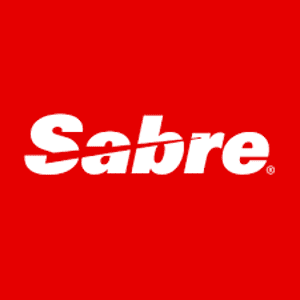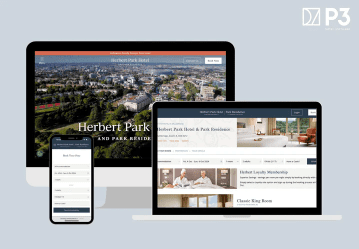
Share of voice (SOV) is essential for assessing brand visibility and engagement compared to competitors. This metric, (calculated by dividing your brand’s mentions by the total mentions in the market and multiplying by 100), offers insights into your brand’s positioning. By understanding the factors that shape the traveler’s path to purchase, hotels can refine their marketing strategies, increase direct bookings, and reduce dependency on third-party platforms.
Example:
An independent boutique hotel in New York wanted to increase its direct bookings and compete against major chains and third-party sites like Booking.com. By tracking Share of Voice (SOV), the hotel noticed it had lower brand mentions compared to its competitors. This insight led them to focus on boosting visibility through strategic social media campaigns, targeted SEO, and online content that emphasized unique local experiences. As a result, the hotel’s SOV grew, driving more travelers to book directly through their website, increasing direct revenue and reducing reliance on commission-based platforms.
This approach illustrates how SOV can guide marketing adjustments that enhance brand positioning and foster direct relationships with travelers.
Why Direct Bookings Should be a Priority
While travelers often start their search on third-party sites like Booking.com and Expedia.com, 72% ultimately prefer to book directly when given the option. With Expedia’s research indicating that travelers explore multiple touchpoints before finalizing a booking, including social media, online reviews, and hotel websites, it’s essential to capture attention and facilitate direct bookings by emphasizing key benefits:
1. Leverage Booking Preferences and Influence Early Stages
- Position Your Brand During the Research Phase: Expedia’s research shows that travelers spend over five hours researching. Hotels can use this phase to emphasize brand benefits through digital advertising, SEO, and organic social content.
- Highlight Unique Perks of Direct Booking: Guests value room upgrades, personalized experiences, and exclusive offers. By promoting these early on, hotels can attract attention and influence decision-making before travelers turn to third-party sites.
2. Reduce Booking Costs and Maximize Profitability
- Avoid High Commission Fees: Direct bookings help hotels bypass the hefty 15-25% commission fees that third-party sites charge, freeing up funds for reinvestment in guest experiences and direct marketing efforts.
- Transparent and Competitive Pricing: Ensure direct booking offers the best rates and communicate this. This transparent approach can help steer travelers away from third-party options and establish trust.
3. Improve Customer Experience with Direct Communication
- Establish Stronger Guest Connections: Direct bookings facilitate open communication, helping guests feel more supported. Guests can make specific requests or inquiries, creating a more personalized and enjoyable experience.
- Provide Tailored Booking Incentives: Personalized perks for direct bookings, like complimentary services or loyalty programs, strengthen the emotional connection and increase the likelihood of repeat business.
4. Optimize Your Website to Compete with Third-Party Sites
- User-Friendly Design and Mobile Optimization: Since 59% of hotel bookings are mobile, optimizing the website for ease of use is essential. Simplify the booking process to improve conversion rates.
- Local SEO and Digital Marketing Integration: To enhance share of voice, invest in local SEO, targeted advertising, and engaging content that attracts direct traffic and keeps guests on your site rather than redirecting to third-party platforms.
5. Strengthen Support for Independent Hotels and Small Businesses
- Highlight Community Support: Emphasize that direct bookings allow independent hotels to reinvest in local communities and businesses, supporting the local economy. For guests who value small business, this can be a strong differentiator.
- Educate on the Value of Direct Bookings: Many travelers may not realize the commission fees tied to third-party bookings. Educating guests on how direct bookings allow hotels to improve their experience can foster a sense of loyalty and support for your brand.
By prioritizing direct bookings and aligning strategies with consumer preferences, hotels can strengthen their market presence, reduce costs, and create a more tailored experience for guests. Leveraging insights from traveler behavior research, like Expedia’s “Path to Purchase,” and emphasizing exclusive perks and streamlined booking processes on your website can significantly boost direct bookings. This approach not only supports local businesses and independent hotels but also builds lasting guest loyalty and maximizes revenue potential.
Incorporating insights from Expedia’s “Path to Purchase” report, it’s clear that reaching travelers early in their research phase, highlighting the value of booking directly, and creating a seamless, user-friendly experience can increase brand loyalty and profitability.
Expedia Group. Path to Purchase: Traveler Behaviors and Decision-Making Insights. Accessed October 29, 2024. Expedia Partner Resources.
Industry research on travel preferences and direct booking benefits, including commissioned reports and market analyses.



















